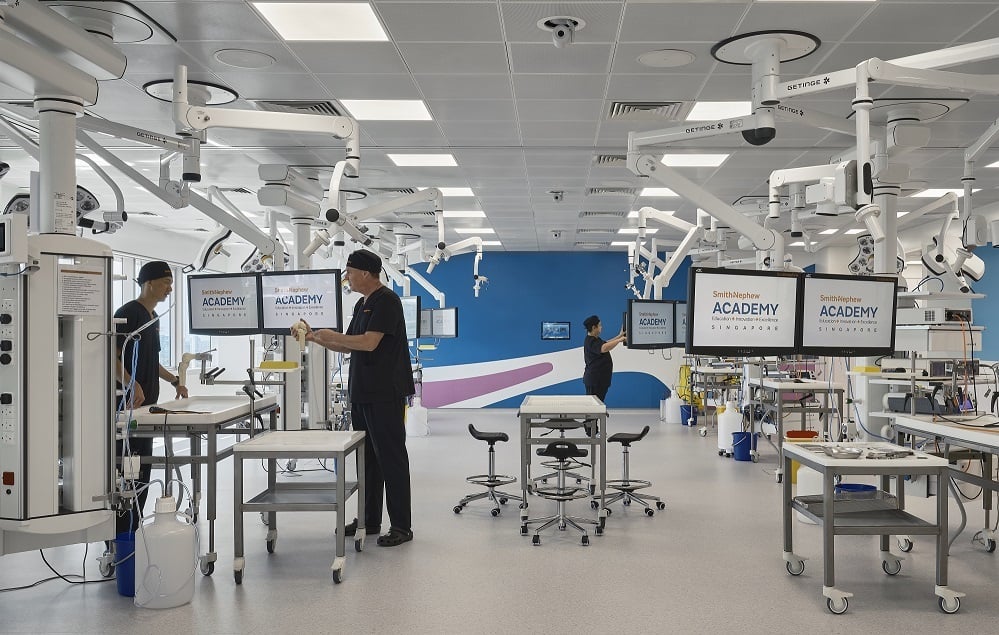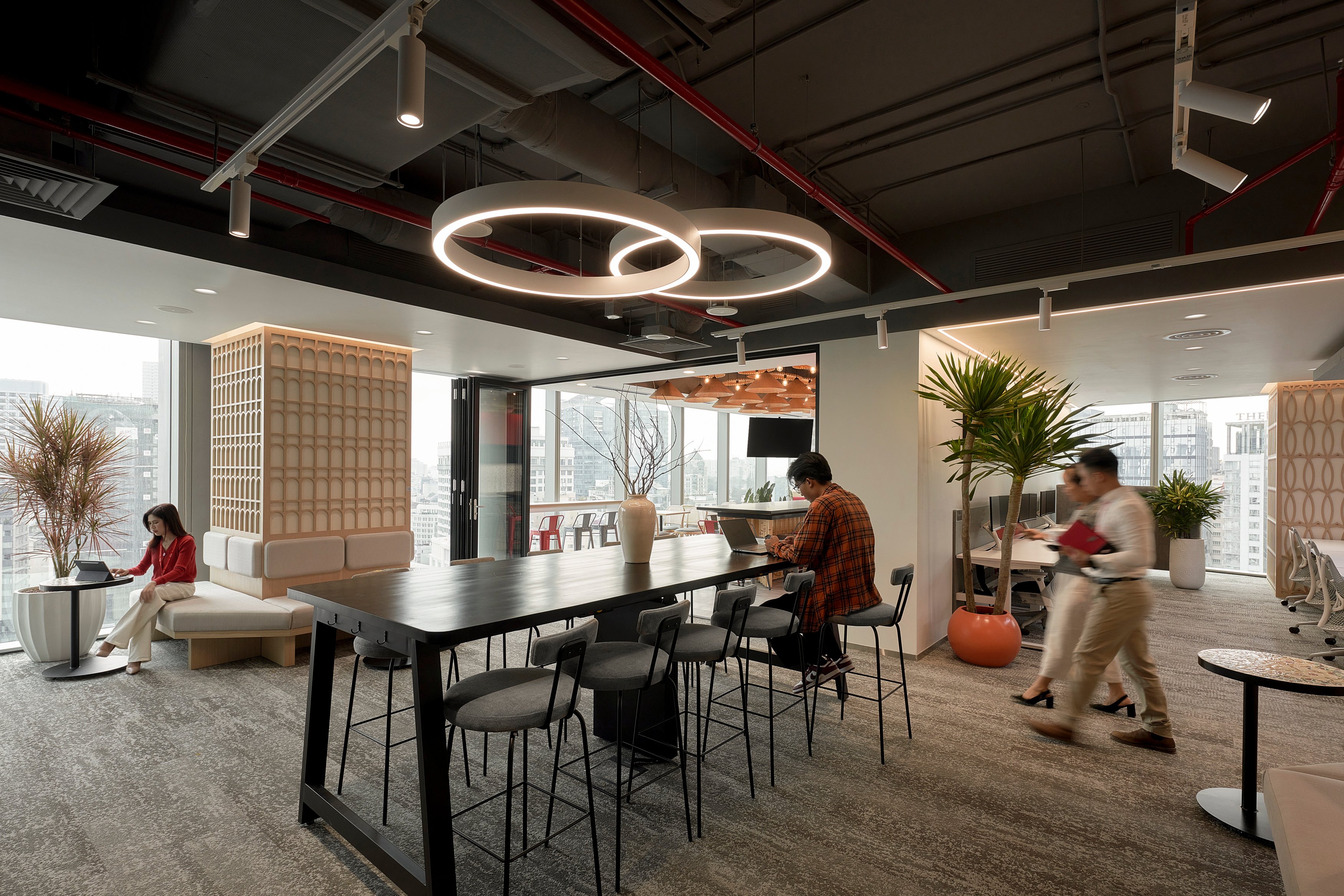Unispace is Reimagining Life Sciences Infrastructure to Empower India’s Healthcare IT Future | Sam Gill, Head of Life Sciences – ANZ Region, Unispace Speaks to eLets eHealth in India

India’s healthcare and life sciences sectors are in the midst of a historic transformation. From AI-driven diagnostics to breakthrough medtech startups, innovation is accelerating at a record pace. But while digital health gets much of the attention, the physical spaces where this innovation takes place—labs, cleanrooms, and research hubs—are often left behind.
At Unispace, we’ve seen how the right environments can unlock the next level of scientific progress. Across the ANZ region, we’ve helped organisations move beyond the traditional lab model toward flexible, modular, and human-first spaces—labs that can adapt as quickly as the science itself. For India, the opportunity to leapfrog outdated infrastructure has never been greater.
From Manufacturing to R&D: A Shift in Mindset
In ANZ, the life sciences economy is increasingly R&D-driven, with early-stage biotech, diagnostics, and medtech firms leading the way. This has fuelled demand for incubator-style labs—shared, agile, and equipped from day one—allowing startups to innovate without the heavy burden of large-scale builds.
India’s surge in medtech and biotech startups makes this model highly relevant. Co-working labs with shared write-up spaces, modular benches, and built-in services could dramatically lower entry barriers while boosting R&D output.
Designing for Smart Flexibility
Flexibility in lab design sounds appealing, but it must be strategic. The most successful spaces are tailored to specific market needs—whether that means scalable lab footprints, pre-installed infrastructure, or convertible bench-to-suite areas.
For India, the path forward lies in segment-specific modular designs that integrate adaptability from the start, particularly in HVAC, electrical, and hydraulic systems. This approach ensures scalability while protecting return on investment.
Building AI-Ready Labs from Day One
AI is no longer optional—it’s critical to competitive advantage. Yet, globally, a majority of life sciences leaders acknowledge they aren’t fully ready to integrate AI into operations.
Our “data-ready by design” philosophy ensures that new labs come with the infrastructure, connectivity, and environmental monitoring systems needed to adopt AI seamlessly when the time is right. For India, building this readiness into lab parks from the outset could prevent costly retrofits and accelerate innovation.
Sustainability Without Sacrifice
Labs are among the most energy-intensive spaces in the built environment, with non-negotiable safety and compliance requirements. Through initiatives like I2SL, we’ve applied best practices such as zoned HVAC and waste heat recovery to reduce energy consumption without compromising safety.
With India’s Net Zero and Green Hospital initiatives gaining momentum, embedding sustainability into lab design will be crucial to lowering operational costs and environmental impact.
Leasable Cleanrooms: A Scalable Advantage
In ANZ, the rise of on-demand, compliance-ready cleanrooms has allowed startups to meet regulatory standards without massive upfront investments. India’s ambitions in medtech manufacturing, biologics, and cell and gene therapy would benefit from a similar leasing model—offering fully certified cleanrooms accessible to emerging players as well as established firms.

Boston Scientific, Madrid, Spain
Human-Centric Labs: Attracting and Retaining Talent
Today’s scientific talent seeks more than sterile white walls. We’re bringing workplace design principles—daylight, biophilia, noise control, and collaborative zones—into labs to improve wellbeing and collaboration.
For India, competing for global scientific talent means embracing this human-first approach. Institutions that invest in experience-led lab environments will have a clear edge in innovation and retention.

A Strategic Platform for Health Innovation
India’s Healthcare IT ecosystem is ready to scale—but its infrastructure must keep pace. By adopting R&D-driven modularity, AI-ready design, sustainable operations, and human-centric principles, India can create world-class life sciences environments that accelerate discovery, attract talent, and lead the global health innovation race.
The lab of the future isn’t just a space—it’s a mindset. And now is the time for India to build it.
Impact at a Glance
- Affordable Innovation – Modular labs that lower barriers for startups.
- AI-Ready Infrastructure – Seamless future tech integration.
- Sustainable by Design – Reduced energy and carbon footprint.
- Scalable Cleanrooms – On-demand, compliance-ready spaces.
- Human-Centric Spaces – Workplaces that inspire and retain talent.




About Sam Gill, Head of Life Sciences, ANZ Region

Sam Gill is the Head of Life Sciences for Unispace across the ANZ region. Sam joined Unispace in early 2023, he was previously a leading head contractor within the pharmaceutical and healthcare industry in Australia. Sam has spent most of his professional career working in the life sciences sector, with a particular focus in this area over the last eight years. He specialises in the construction and delivery of research laboratories and pharmaceutical production facilities including clean rooms and biocontainment facilities. Sam’s experience across ANZ has seen him work with Baxter Healthcare, Johnson & Johnson, AbCellera and Phebra.
Follow Sam Gill on LinkedIn.




